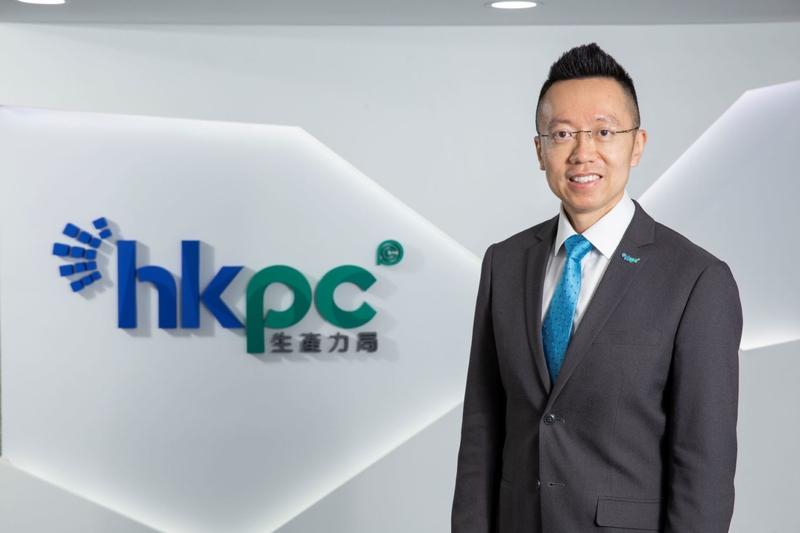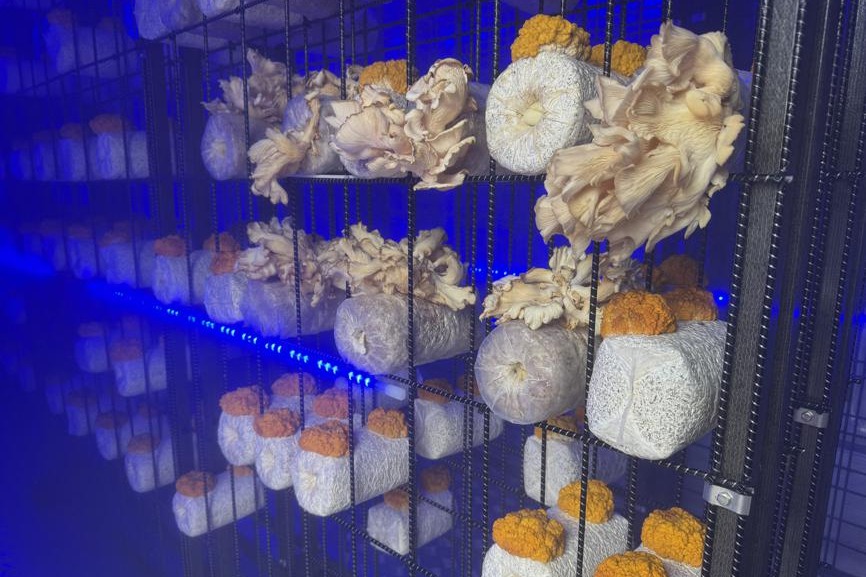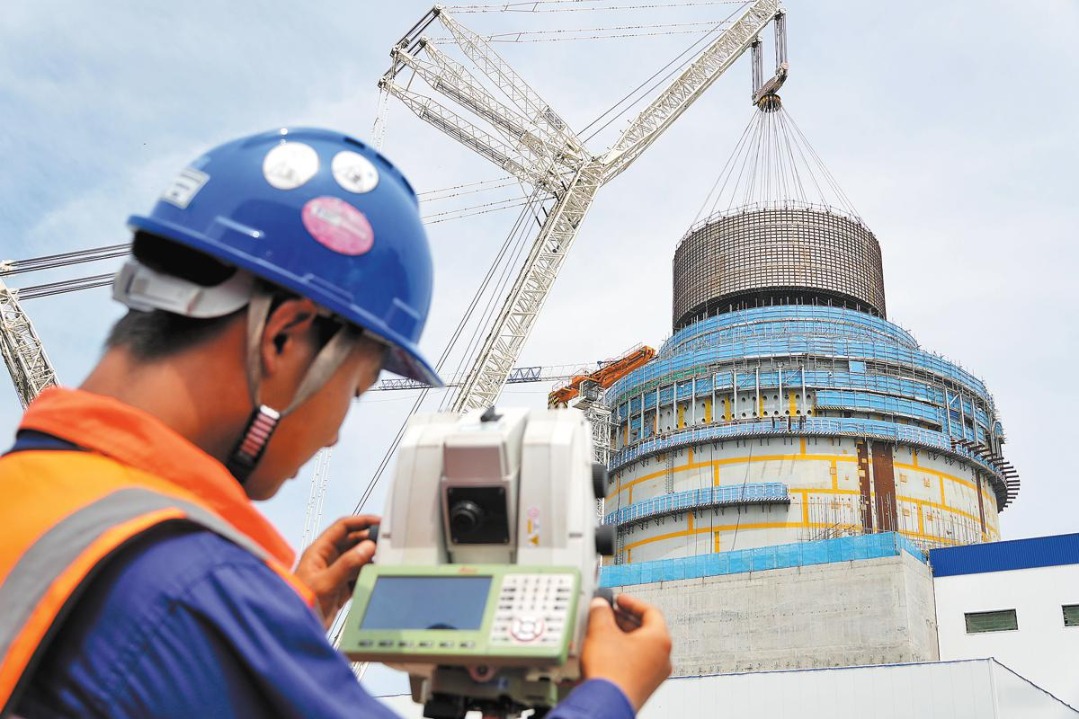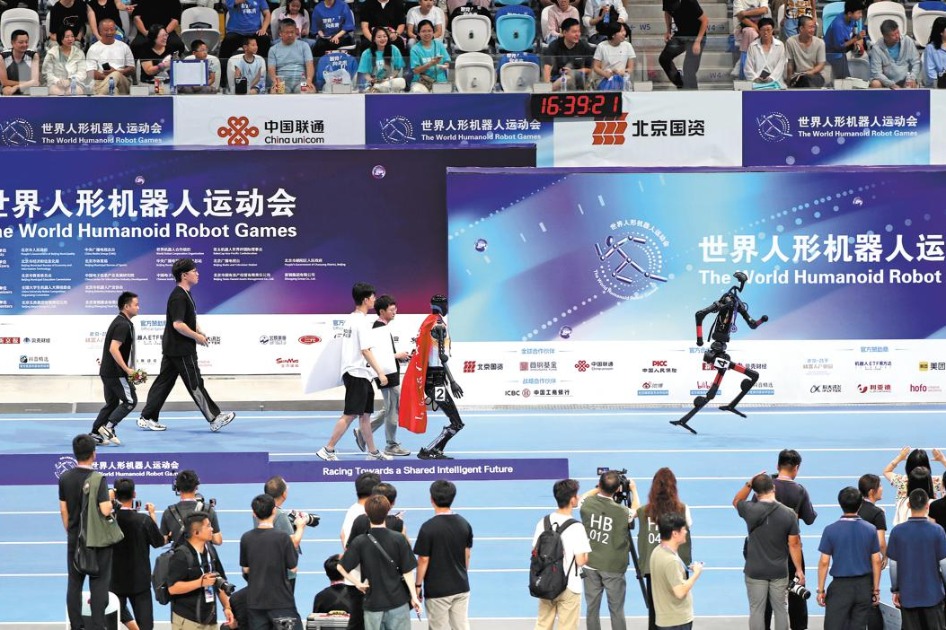From liquid eggs maker to a 'smart' player

Riding the reindustrialization wave, Hong Kong's time-honored brand has taken the plunge into advanced technology to boost production and eyes vaster markets. Liu Yifan reports from Hong Kong.

At a manufacturing plant in Tai Po InnoPark, a highly automated and intelligent production line enabled by artificial intelligence, big data and cloud computing is taking shape. This smart factory should be a rarity in Hong Kong, not only because the city has just gone through one of the world's fastest deindustrialization drives, but also for its owner — an old-line food manufacturer, rather than a high-tech firm as many may expect.
The story of Luen Tai Hong goes back to 1957 when the company was founded. After decades of development, it has become a key local supplier of fresh liquid eggs — a raw material widely used in making cakes and bread, as well as Chinese and Western dishes. Today, its products are supplied to hundreds of eateries, well-known bakeries and chain restaurants in the city, with a market share of nearly 30 percent.
Opportunities, nevertheless, coexist with challenges — the manufacturer's production capacity ran into bottlenecks. Hong Kong, as one of Asia's most expensive cities, has limited potential for businesses to engage in large-scale production. The dearth of land, coupled with high production and labor costs, has stunted Luen Tai Hong's growth.
"At present, we produce just 30 (metric) tons of fresh egg liquid daily, relying mainly on manual supervision, thus limiting productivity," explains Young Kam-yim, managing director of Luen Tai Hong.
With its existing production gradually failing to catch up with demand, the brand found a silver bullet for a breakthrough. In January, Luen Tai Hong launched a "smart production line" project at Hong Kong Science and Technology Parks Corp's InnoPark in Tai Po — one of the city's three advanced manufacturing centers geared to revitalizing the local industrial community through high technology.
Unlike a traditional factory, the tailor-made production line in the InnoPark adopts new technologies, such as sensors, the internet of things and machine vision. The production process will be monitored with real-time data to ensure product safety and traceability, while increasing productivity and stability, says Young.
"With intelligent machines, our production capacity can jump two to threefold, with up to 70 tons of fresh egg liquid produced per day," Young says. "At the same time, manpower, production time and human error will be reduced, achieving overall cost savings of up to 30 percent. Staff can also be deployed to handle high-tech work, cutting costs and raising efficiency."
Luen Tai Hong's move dovetails with Hong Kong's call to restore manufacturing to its heyday of the 1970s, when local manufacturers contributed more than 30 percent of the city's GDP. But the figure shrank to merely 1 percent in 2019 after the service industry had taken over as the most dominant economic pillar.

By contrast, in the other three Asian "tiger economies" — Taiwan, South Korea and Singapore — the manufacturing sector's share of their GDP stood at 30 percent, 25 percent and 20 percent, respectively, according to data from the University of Hong Kong's Business School.
Mao Zhenhua, a professor at the HKU Business School, points out that the city's economy is "unbalanced", which calls for restructuring and diversification.
"With the increasing business opportunities from China's national development strategy of 'internal circulation' as the mainstay and the growing importance attached to innovation and technology, Hong Kong should achieve economic transformation through reindustrialization in the future," he says.
The reindustrialization push, advocated by the Hong Kong Special Administrative Region government, is nothing like the former labor-intensive path. Its centerpiece is to streamline production processes for the development of high-value-added sectors and industry supply chains locally by virtue of Hong Kong's reputation in research and development, design and intellectual property protection, as well as innovative technologies, such as artificial intelligence and new materials.
In a sign that the drive is gaining pace, the Innovation and Technology Commission introduced the Reindustrialization Funding Scheme in July 2020 to help manufacturers set up new smart production lines in Hong Kong.
Luen Tai Hong is among the beneficiaries. Its new "smart" project, due to come into operation in two years, has received a subsidy of HK$14.9 million ($1.9 million) under the funding program, accounting for one-third of the project's total cost.
As of January, the Reindustrialization Funding Scheme had received 35 applications, with 21 projects having been approved, involving HK$153 million in funding, according to the Innovation and Technology Commission.
One of the aid program's major targets is the food business, which is among the top four sectors contributing to the largest growth in value among local manufacturing, says Edmond Lai, chief digital officer of the Hong Kong Productivity Council — a government body that offers technological transformation solutions to the city's business sector.
"Intelligent production lines also help to optimize production procedures, ensure product quality and increase market confidence in 'Made in Hong Kong' products in the long run. This will help enterprises to tap the business opportunities on offer," says Lai.
Riding high on surging capacity, Luen Tai Hong sees opportunities galore in driving fresh liquid egg sales beyond the local market. Young says their next big green pasture will be the vast Guangdong-Hong Kong-Macao Greater Bay Area — one of the world's wealthiest city clusters with a population of more than 86 million.
The goal, he says, is to make Hong Kong's food manufacturing "shine on the global stage".
- 2025 SCO Forum on People-to-People Exchange held in Beijing
- Exhibition commemorating 80th anniversary of victory over Japanese aggression, fascism opens in Macao
- Video series commemorates Soong Ching Ling's peace diplomacy legacy
- Over 40 expatriates make dumplings at a community event in Tianjin
- Shanghai Disney Resort adjusts ticket structure, unveils autumn lineup
- Cutting-edge fungal technology takes center stage at Jilin expo




































